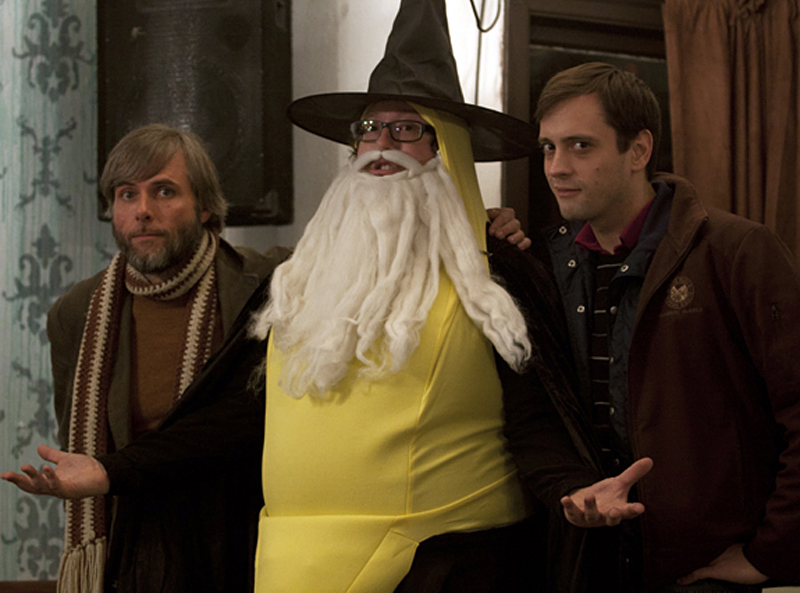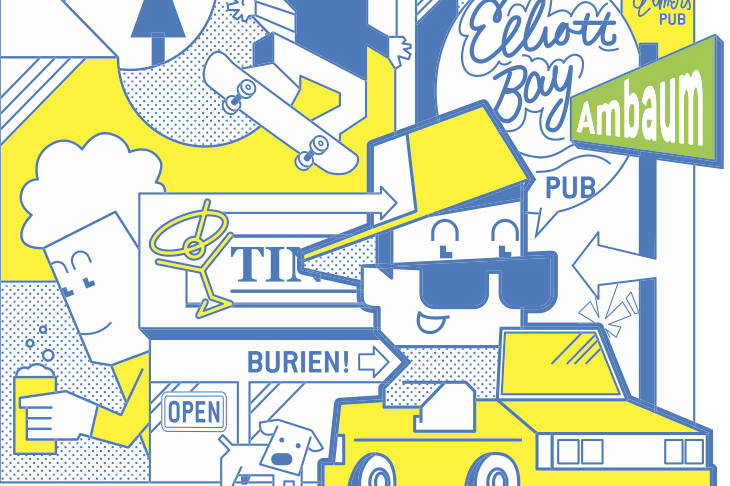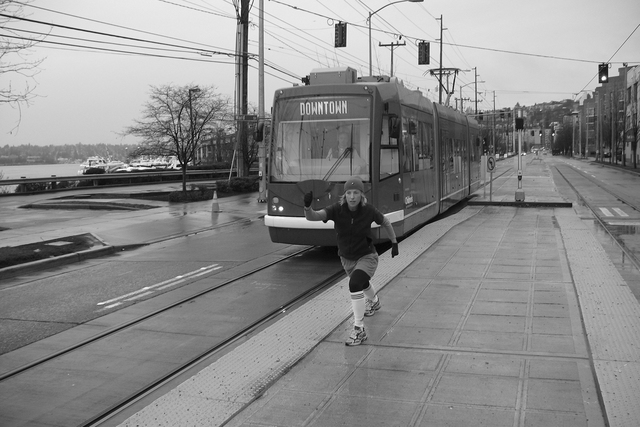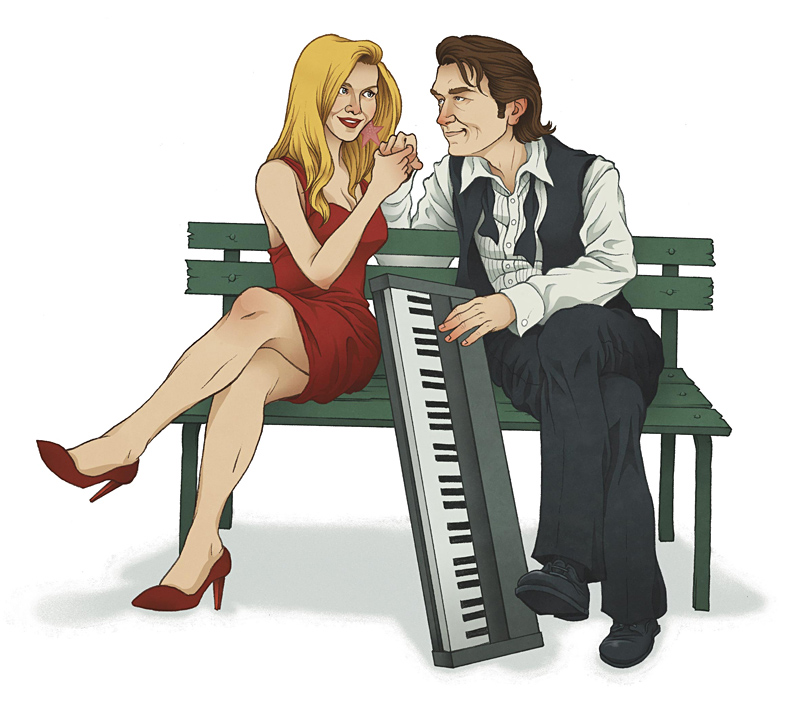On a drizzly Friday afternoon, Kevin Hyder takes a seat at a Capitol Hill coffee shop, clutching a gigantic mug of tea. Heavy flecks of white have overtaken the blonde in his beard and shaggy mane, and he’s wearing a scarf. As he begins to sip his tea, Hyder and his deputy, Tristan Devin, speak of organizational tenets and supportive audiences. In short, Hyder looks and acts every bit the Seattle-based nonprofit director that he is. But the nonprofit Hyder runs is not one he wants visitors to take all that seriously. In fact, he wants them to laugh.
The Friday before, Hyder was in Hawaii, popping the question to his girlfriend, while the nonprofit he runs was holding an important meeting. After she said yes, Hyder phoned his comrades back home. “It was like calling your kid to check in,” says Hyder, “and there was awesomeness going on.”
That awesomeness was occurring at the People’s Republic of Komedy’s weekly open-mike (Fridays, 8–10 p.m.) at the joint Hyder opened a little more than a year ago: The People’s Republic Kafe (1718 12th Ave., 420-1662, peoplesrepublicofkomedy.com). The cafe represents a critical upgrade from the sidewalk coffee cart that had served as PROK’s creative spawning ground since its founding in 2005. And it’s now central to the alt-comedy collective’s effort to redefine itself in the wake of a hemorrhage of talent to New York and Los Angeles. Of course, such an exodus tends to afflict the comedy scene of just about every city not called New York or Los Angeles.
“We all had to leave, and not because we didn’t love Seattle,” says Hari Kondabolu, who, among the crop of talented comics who left Seattle and PROK after the group’s halcyon days in the mid-aughts, has achieved perhaps the greatest national success. “If we wanted to make [standup comedy] a career, there just wasn’t an industry that was big enough [in Seattle]. So it’s hard, because PROK requires a certain stability. And Kevin is the constant.”
Now based in New York, Kondabolu returned over Labor Day weekend to play PROK’s Bumbershoot show, which it has curated for the past four years. Of his time in Seattle, he says, “I feel like the talent pool we had from ’05–’07 was ridiculous. It could compete with any scene in the country. It’s a different thing now. Now it’s people who support Kevin . . . It’s not the end-all anymore.”
Yet that may not be all bad, Kondabolu theorizes: “I think it’s healthy. The spirit was anti-establishment: We’re going to build shows in alternative spaces. But it got bigger and became, in some ways, an establishment as well. That’s what happens. It’s part of a healthy scene, and PROK still has a huge presence.” (Kondabolu is visiting town this week for a Tuesday show at Odd Duck Studio; see the Wire, page 17.)
A year ago, Hyder, the last of the four founding members to be intimately involved in the group, concedes that “walking away was on the table.” But the new cafe and the stage therein brought an infusion of fresh talent, and that fresh talent refused to let Hyder fold the tent. Hyder proudly proclaims, “In the last year, we’ve responded to five years of fits and starts.”
The PROK used to be more focused on building recognition for a core of accomplished Seattle comics, mainly through its twice-monthly Laff Hole showcase at Chop Suey. That’s still a significant part of the group’s mission, but it’s more engaged with nascent comics than with performers who are nearing a cross-country jump similar to Kondabolu’s. “The most important thing is to get the right people to the open mike,” says Devin of the Friday-night events, which are consistently packed with rookie comics performing ultra-short sets between swigs of beer (which the cafe also serves to patrons). “We’ve conscientiously tried to create the open mike you should come to for your first time performing.”
But if that and the sketch and standup classes Hyder and Devin teach every Sunday at the currently dark Intiman Theatre represent the ground floor, PROK has also ratcheted up its efforts to book touring comedians like Tig Notaro and Andy Kindler, whether at Laff Hole or other non-traditional venues (including the Intiman, where Nick Thune will perform on December 1). And on December 8, Simpsons writer Dana Gould—”the father of alternative comedy,” according to Devin—will provide commentary for a screening of Ed Wood’s Plan 9 From Outer Space at SIFF Cinema at the Uptown after performing a Laff Hole set the night before.
“Bringing in out-of-towners is important,” says Devin, who adds that locals are regularly booked to open for big-name headliners. “We’re providing people with something to aspire to: to see a national comic at the top of their game.”








